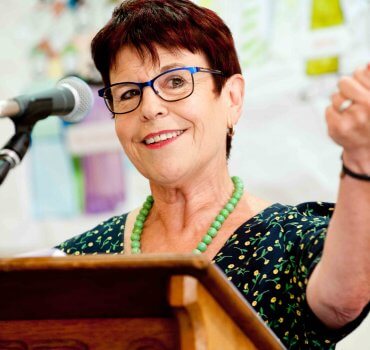

NZEI’s lead principal negotiator Louise Green says next Wednesday’s strike action is necessary to fix the crisis in teaching.
Failing a last-minute agreement in mediation, primary school classrooms across Cambridge and the rest of the country will fall silent next Wednesday, August 15, as primary teachers and principals strike for the day. Initially scheduled to be a three-hour strike, this was upgraded to a full day of industrial action after a vote from members of the New Zealand Educational Institute (NZEI) Te Riu Roa – the teachers’ and principals’ union – to send a stronger message. The campaign, Kua Tae Te Wā/ It’s Time, was launched by the NZEI to achieve the significant investment they say is needed to allow children to reach their potential and to make teaching seen as an attractive, valued and well-supported profession.
It is up to the Board of Trustees for each school to decide whether or not the school will close, with partial closure not an option under the law. All primary schools in Cambridge are closing, as well as Cambridge Middle School. The teachers and principals have highlighted high workloads, lack of support for students with additional learning and behavioural needs, and undervaluing of the profession as key issues over the past few years.
The NZEI’s lead principal negotiator Louise Green said the decision to strike sends a strong message to the Government that it’s time to fix the crisis in teaching. Lead teacher negotiator Liam Rutherford said the members’ decision to take industrial action shows the degree of frustration and conviction among teachers and principals.
At the heart of the campaign are four main issues: The crisis in education, time and workload, issues with salary and relativities, and career development.
A recent survey of more than 1000 people conducted by the NZEI showed that there is widespread support for increased government spending on public education, including a significant pay rise for teachers and more support for children with additional learning needs. Of those surveyed, 83 per cent said teachers need a pay rise, with 91 per cent supporting at least a “moderate” pay rise, with 82 per cent agreeing that this would improve teacher numbers and address shortages in the profession.
This is the first industrial action primary teachers have taken since 1994.
“Teachers and principals are very conscious of the inconvenience for students and families, but we’re taking action now to avert the very real threat of larger class sizes within a few years,” Louise Green said.








